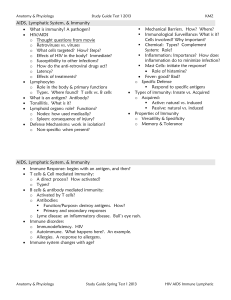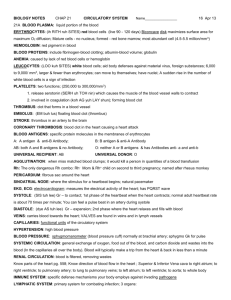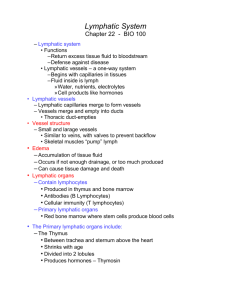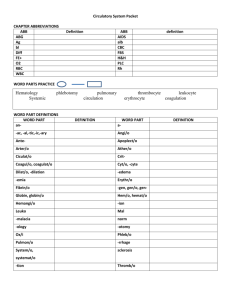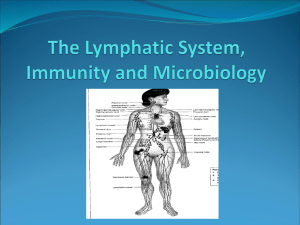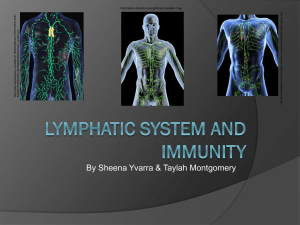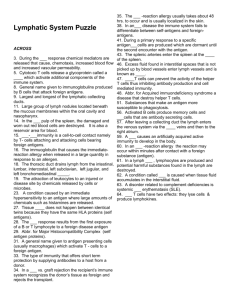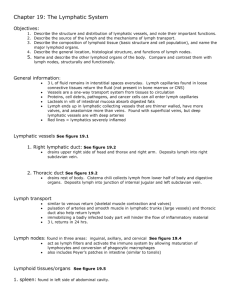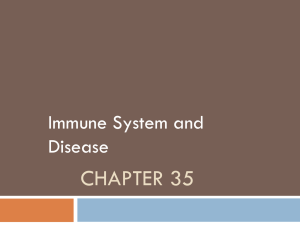Lymphatic Study Guide - Belle Vernon Area School District
advertisement
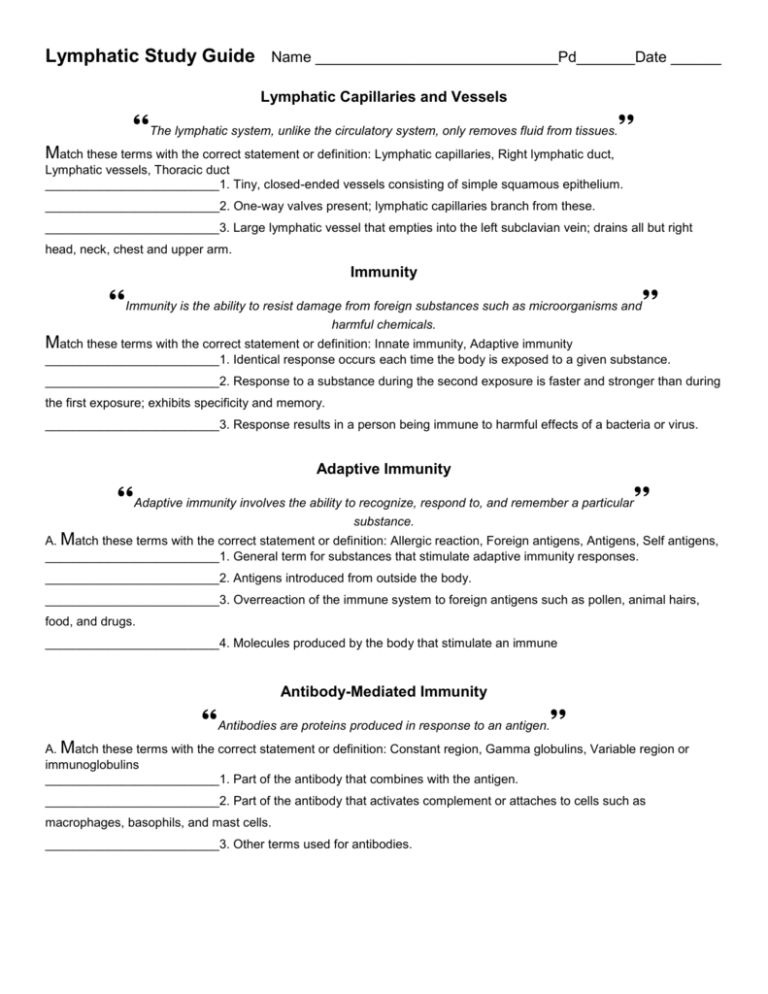
Lymphatic Study Guide Name _____________________________Pd_______Date ______ Lymphatic Capillaries and Vessels ❛❛The lymphatic system, unlike the circulatory system, only removes fluid from tissues.❜❜ Match these terms with the correct statement or definition: Lymphatic capillaries, Right lymphatic duct, Lymphatic vessels, Thoracic duct _________________________1. Tiny, closed-ended vessels consisting of simple squamous epithelium. _________________________2. One-way valves present; lymphatic capillaries branch from these. _________________________3. Large lymphatic vessel that empties into the left subclavian vein; drains all but right head, neck, chest and upper arm. Immunity ❛❛Immunity is the ability to resist damage from foreign substances such as microorganisms and❜❜ harmful chemicals. Match these terms with the correct statement or definition: Innate immunity, Adaptive immunity _________________________1. Identical response occurs each time the body is exposed to a given substance. _________________________2. Response to a substance during the second exposure is faster and stronger than during the first exposure; exhibits specificity and memory. _________________________3. Response results in a person being immune to harmful effects of a bacteria or virus. Adaptive Immunity ❛❛Adaptive immunity involves the ability to recognize, respond to, and remember a particular❜❜ substance. A. Match these terms with the correct statement or definition: Allergic reaction, Foreign antigens, Antigens, Self antigens, _________________________1. General term for substances that stimulate adaptive immunity responses. _________________________2. Antigens introduced from outside the body. _________________________3. Overreaction of the immune system to foreign antigens such as pollen, animal hairs, food, and drugs. _________________________4. Molecules produced by the body that stimulate an immune Antibody-Mediated Immunity ❛❛Antibodies are proteins produced in response to an antigen.❜❜ A. Match these terms with the correct statement or definition: Constant region, Gamma globulins, Variable region or immunoglobulins _________________________1. Part of the antibody that combines with the antigen. _________________________2. Part of the antibody that activates complement or attaches to cells such as macrophages, basophils, and mast cells. _________________________3. Other terms used for antibodies. Antibody Production ❛❛The production of antibodies after the first exposure to an antigen is different from that❜❜ following a second or subsequent exposure. Match these terms with the correct statement or definition: Memory B cells, Primary response, Plasma cells Secondary, or memory response _________________________1. Results from the first exposure of a B cell to an antigen. _________________________2. Lymphocytes that produce antibodies. _________________________3. Lymphocytes responsible for the secondary (memory) response. _________________________4. Response to an antigen that Acquired Immunity ❛❛There are four ways to acquire immunity: active natural, active artificial, passive natural, and❜❜ passive artificial. Match these terms with the correct statement or definition: Active artificial immunity, Passive artificial immunity, Active natural immunity, Passive natural immunity, Antiserum _________________________1. Results from natural exposure to an antigen that causes the body's immune system to respond against the antigen. _________________________2. Results when an antigen is deliberately introduced into an individual to stimulate his immune system; also called vaccination. _________________________3. Results from the transfer of antibodies from a mother to her child across the placenta. _________________________4. Results when antibodies are removed from a human or another animal and injected into an individual requiring immunity. _________________________5. General term used for antibodies that provide passive artificial immunity. Match these terms with the correct parts labeled in antibody figure: Antigen-binding site, Constant region, Variable region 1. _________________________ 2. _________________________ 3. _________________________ Match these terms with the correct parts labeled in tonsil figure: Lingual tonsil, Palatine tonsil, Pharyngeal tonsil 1. _________________________ 2. _________________________ 3. _________________________ Match these terms with the correct parts labeled in lymph node figure: Medulla, medullary cord, efferent lymph vessels, lymph nodules, afferent lymph vessels, cortex, fibrous capsule. Match these terms with the correct parts labeled in lymph node figure: Cervical nodes, Right Lymphatic Duct, Entrance of Right Lymphatic Duct, Axillary Nodes, Mammary Plexus, Thoracic Duct, Ingunial Node, Entrance of Thoracic Duct, Cisterna
